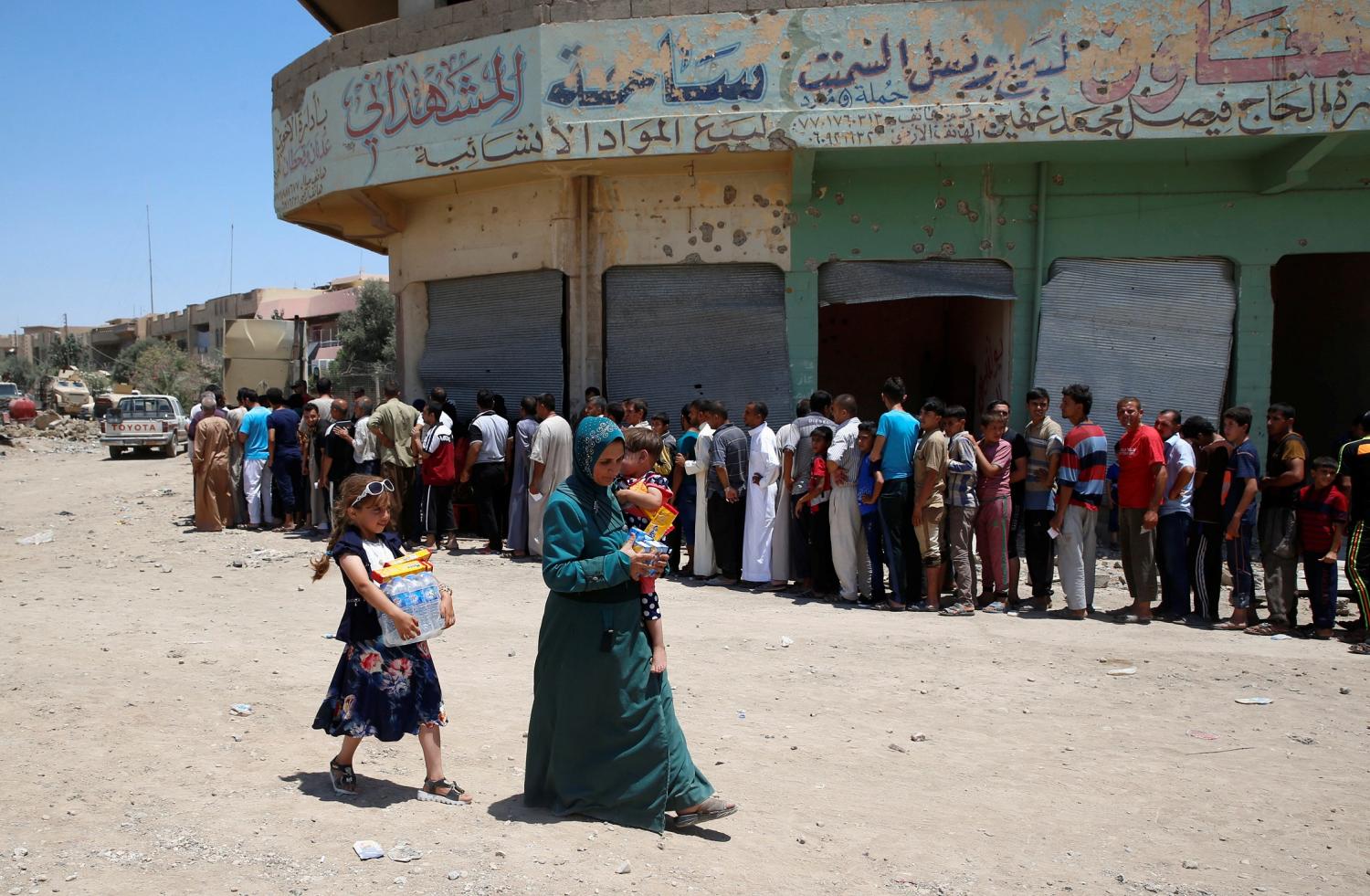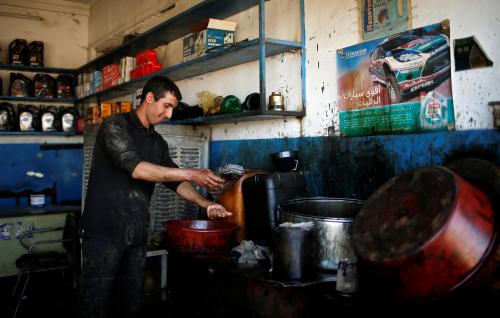An extensive literature examines the link between social protection-related public spending and objective outcomes of well-being such as income, employment, education, and health (see Department for International Development [DFID], 2011; ILO, 2010; World Bank, 2012). Much less attention has been given to how government social protection policies influence individuals’ own sense of well-being, particularly in low- and middle-income countries (often referred to as developing countries). Yet, the effectiveness and the sustainability of such policies and programs often depend on how people perceive them (Arampatzi, Burger, Ianchovichina, Röhricht, & Veenhoven, 2015; Livani, 2017; Oishi, Schimmack, & Diener, 2012; Veenhoven, 2002; Verme et al., 2014).
This paper examines the relationship between social protection programs and subjective well-being in Iraq. The need for government assistance is evident in a context of violent conflict and uncertainty. Beyond the immediate monetary need, public transfers are potentially important for psychosocial well-being by mitigating uncertainty and providing a sense of a functioning government. The well-being effects of public transfers may be strongest for the poor, the socially excluded, and for individuals who live in the most insecure regions. Another important consideration is the source of income assistance. For example, receiving financial help from relatives, friends, and private charities (as opposed to the government) may have more positive effects on subjective well-being since it strengthens inter-personal support within communities and recipients feel cared for on a more personal level (Aknin, Dunn, & Norton, 2012; Aknin, Sandstrom, Dunn, & Norton, 2011; Lyubomirsky, King, & Diener, 2005; Saunders, 2000; Veenhoven & Ouweneel, 1995). Alternatively, help from these private sources could lead to more discomfort or shame for “burdening” other families or the community. This is particularly pertinent to Iraq where the alternative, i.e. government assistance, is viewed as an entitlement due to the country’s rich natural resource endowments (Alzobaidee, 2015; Krishnan, Olivieri, & Ramadan, 2017), and may therefore have weaker stigma effects than income assistance received from private sources.
Finally, under stable socio-economic conditions, individuals care about the process in which income is generated. The procedural utility theory posits that people do not only value outcomes but also the processes that lead to those outcomes (Benz, 2005; Frey, Benz, & Stutzer, 2004). People derive a higher satisfaction from income generation processes that are viewed as “empowering” and characterized by independence and autonomy as opposed to processes that are hierarchical and where individuals are subjected to decisions made by others (Benz, 2005; Benz & Frey, 2008; Hagler, Hamby, Grych, & Banyard, 2016; Schneck, 2014). Therefore, income generated through employment, self-employment, or personal assets is likely to have a more positive effect on subjective well-being than any type of public or private income assistance. Whether this is also true in unstable environments remains largely unexplored.
The analysis in this paper takes place in a middle-income country that is resource-rich, conflict-afflicted, and heterogenous in terms of its population’s ethnic, cultural, and religious composition. To the best of our knowledge, no prior research has examined the relations of social protection-related public spending with subjective well-being in such a context. Moreover, there is a dearth of studies on subjective well-being in the Middle East and North Africa (MENA). Given the volatility of the region, as well as the recent civic uprisings and demonstrated dissatisfaction with government policies, it is important to gain a better understanding of the factors that influence citizen satisfaction, that in turn can promote social cohesion and stability.
Also, the research informs social policies in Iraq, particularly as the Government considers and implements reforms to improve the effectiveness and fiscal sustainability of its social protection system. Since 2014, the decline in oil prices and armed conflict has severely constrained the fiscal space and strengthened the imperative of reforming social protection programs (International Policy Centre for Inclusive Growth [IPC-IG], 2017; Krishnan et al., 2017). Some of the programs, such as the Public Distribution System (PDS) are universal in nature and present a great fiscal burden. More than 70 percent of spending on the program could be saved if leakages to the non-poor were eliminated (Silva, Levin, & Morgandi, 2012). Therefore, one of considerations for reform is to gradually move toward a targeted system that exclusively benefits the poor while using the freed-up resources to design programs that promote employment, education, and housing for the poor and non-poor alike (World Bank, 2014b). The feasibility and sustainability of such reforms hinges to a large degree on citizens’ assessment of their well-being under the different programs. Therefore, it is important to have greater insight into the relationship between existing programs and subjective welfare to complement the knowledge on the objective well-being effects of the programs.
Our research finds that the relationship between public transfers and life satisfaction differs across social protection programs. Public programs that are based on categorical targeting and intended for individuals believed to be vulnerable bring about greater stigma and disempowerment effects than programs that are contributory or universal in nature. As expected, the association between public income assistance and life satisfaction is more positive (or less negative) for the poor. However, this is not the case for socially excluded groups (such as female-headed households) or for individuals who live in the most insecure regions.
We do not find any support for the idea that income assistance from private persons and entities is a less stigmatizing alternative to public programs. Also, in contrast to both public and private income assistance, income generated through personal assets and property ownership is consistently associated positively with life satisfaction. Seemingly, individuals feel more empowered, proud, and fulfilled by this type of income.
The paper is structured as follows: Section 1 is the introduction; Section 2 introduces the theoretical framework; Section 3 provides the background and Iraqi context; Section 4 outlines the research questions and the methodology; Sections 5 and 6 present and discuss the results; and finally, Section 7 discusses policy implications and provides concluding remarks.





